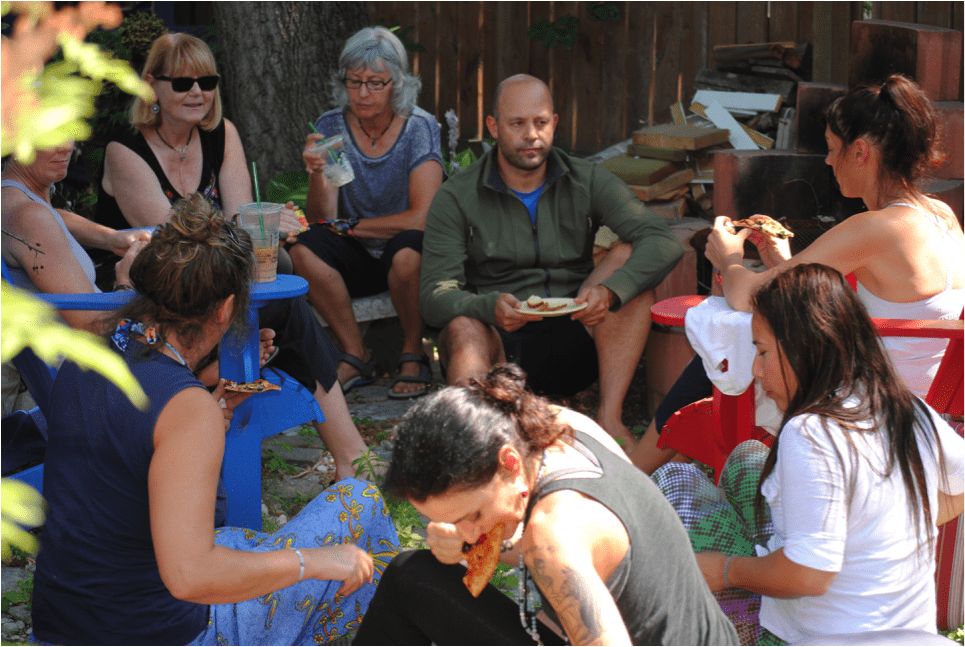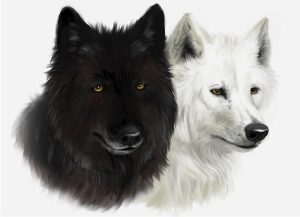People were created to be loved. Things were created
to be used. The reason the world is in chaos is because
things are being loved and people are being
used. Unknown
If we did a global poll on the above quotation, I suspect the majority vote would favour it as the truth.
A recent proof is the outcome of the U.S. Presidential election touted by the pundits as a vote against “the Establishment.” From their shared perspective, the establishments being voted against would include major corporations, government and institutions of finance, education and health. These establishments are typically organized as hierarchical bureaucracies intended to sustain and grow themselves to the exclusion of those outside their boundaries — customers, voters, depositors, students and patients. As one source stated, the American public, in an act of revenge, voted against these “machines of exclusion.”
Unfortunately, rather than offering a vision of a desired future, a revenge vote only reveals what is no longer wanted. Without a clear vision, the tendency is to get stuck focusing on what appears negative about the present thereby feeding it with even more negative energy.
Let’s hope that once the dust settles from the continued analyses of voters’ motivation, a clearer sense of what the American people want will emerge. Future direction aside, the experience of this nation-wide event is analogous to current global unrest and dissatisfaction with power-based, exclusionary institutions. Instead of our social institutions reducing inequities, many people hold these same institutions responsible for widening the gap between the 99% and the “wealthiest people in society that have a disproportionate share of capital, political influence, and the means of production.”
Nonetheless, when life produces a shocking, distressful event, isn’t our personal and collective work not to become mired down with negativity but instead to see the silver lining in the dark cloud and respond with positive thinking and action?
Today, a simple positive act could be to reverse what currently occurs in our corporations and institutions. We could opt to love people and use things. To “love people” can be defined as enabling them to realize their full potential.
Arguably, the goal of human life is to grow our human potential into virtues that exercise and develop moral character. Interestingly, in their attempts at developing moral character, corporations and institutions are at the infancy of designing socially responsible operations. I would argue that organizations voluntarily taking “responsibility for the impact of their activities on customers, suppliers, employees, shareholders, communities and other stakeholders, as well as the environment” are virtuous of character and thus their people live fulfilled lives.
For a virtuous organization to optimize its people’s potential, those people require —
- collaborative deliberation, design and development of the organization’s mission/social contribution;
- meaningful work with built-in variety and learning; and
- whole jobs wherein tasks are connected to organizational and societal contribution.
Unfortunately, multi-national corporations and government hierarchies do not structure themselves around enriched jobs where low levels of specialization, separation and formalization … allow organizational members to see the consequences of their activities, to give them the operational and regulatory variety needed to exercise and develop their moral character, and to discuss their activities with each other (Vriens, Achterbergh, Gulpers 2016). I, for one, am not interested in offering my talents or loyalties to institutions not willing to develop my virtues and potential. Therefore, a second simple positive act would be to say “No” to buying, selling or working for non-virtuous institutions, which might be exactly what America’s revenge vote intended.
A third positive action, would be to act on your own behalf, in other words to lead in your own life. To be both an effective and virtuous leader, you will want to answer these questions:
What are your distinct strengths/virtues?
How have you been shaped by your education and experiences?
What blocks your ability to see the truth?
What drives you, that is, what do you value?
What do you want to be?
What impact do you want to have?
Until we know who we are and can express our virtues, any action we take will be less than effective due to being coloured by our ignorance and fears. For truly effective living and fulfillment, self-awareness is the simplest, though not the easiest route.
Follow effective action with quiet reflection. From the quiet reflection will
come even more effective action. Peter Drucker
Want more on self-aware, virtuous living? Click here.





